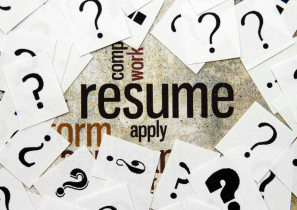Are you ready to take the next step in your career? Was it one of your goals, this year to find a new job? Whether you’re a recent graduate or a seasoned professional, job searching for a new role can be overwhelming. From crafting the perfect resume to acing the interview, there’s a lot to consider. But fear not! Our ultimate job search guide is here to help you navigate through the challenges and land your dream job.
In this comprehensive guide, we’ll walk you through every step of the job search process, providing you with expert tips and advice along the way. Learn how to optimise your resume to catch the attention of hiring managers. Discover the secrets to writing a compelling cover letter that stands out from the competition. Master the art of networking and leveraging your connections to uncover hidden job opportunities. And when it’s time for the interview, we’ll share the strategies you need to impress potential employers and secure that job offer.
Don’t let the job search process intimidate you. With our ultimate job search guide, you’ll have all the tools and knowledge you need to succeed. So, get ready to take your career to new heights. Let’s dive in!
Crafting an effective resume

When Searching for a new job your resume is your first opportunity to make a lasting impression on potential employers. It’s crucial to craft a resume that showcases your skills, experiences, and accomplishments in a way that captures their attention. Here are some key strategies to keep in mind:
- Tailor your resume to the job: Customise your resume for each job application. Study the job description and highlight relevant skills and experiences that align with the position.
- Use a professional format: Begin with a clear and concise summary statement that highlights your career objectives and key qualifications. Organise your resume with sections that include education, work experience, skills, and achievements.
- Quantify your achievements: Instead of simply listing your job responsibilities, focus on showcasing your accomplishments. Use numbers, percentages, and specific examples to demonstrate the impact you made in previous roles.
Crafting an effective resume is essential for getting noticed by hiring managers. By following these strategies, you’ll be one step closer to landing your dream job.
Here’s some useful resources:
- SEEK Resume Guide: https://www.seek.com.au/career-advice/category/resumes
- CareerOneStop Resume Builder: https://www.careeronestop.org/JobSearch/Resumes/resumes.aspx
- LinkedIn Resume Tips: https://www.linkedin.com/help/linkedin/answer/a510363
Writing a compelling cover letter
While your resume provides an overview of your qualifications, a cover letter allows you to personalise your application and showcase your enthusiasm for the position. Here are some tips to help you write a compelling cover letter:
- Address it to a specific person: Whenever possible, address your cover letter to a specific person rather than using a generic salutation. This shows that you’ve taken the time to research the company and make a personal connection.
- Highlight your relevant skills and experiences: Use the cover letter as an opportunity to expand on key points from your resume. Discuss specific examples of how your skills and experiences make you a strong fit for the role.
- Demonstrate your enthusiasm and passion: Show your excitement for the opportunity and explain why you’re interested in the company. This helps the hiring manager understand your motivation and commitment.
Writing a compelling cover letter can set you apart from other applicants. Use it as a chance to showcase your personality and make a memorable impression.
Here’s some useful resources:
- SEEK Cover Letter Guide: https://www.seek.com.au/career-advice/article/free-cover-letter-template
- CareerOneStop Cover Letter Builder: https://www.careeronestop.org/JobSearch/Resumes/cover-letters-sample.aspx
- Monster Cover Letter Tips: https://www.monster.com/career-advice/cover-letters
Optimising your LinkedIn profile for job search

In today’s digital age, having a strong online presence is essential for job seekers. LinkedIn is a powerful platform that can help you connect with professionals in your industry and uncover job opportunities. Here are some tips for optimising your LinkedIn profile:
- Complete your profile: Ensure that your profile is complete with a professional photo, a descriptive headline, and a summary that highlights your key skills and experiences. Add detailed information about your work history, education, and certifications.
- Use keywords strategically: Incorporate relevant keywords throughout your profile to improve its visibility in search results. Think about the skills and qualifications that employers in your industry are looking for and incorporate them naturally into your profile.
- Engage with your network: Connect with professionals in your industry, join relevant groups, and participate in discussions. Engaging with your network can help you build relationships and uncover job opportunities.
Optimising your LinkedIn profile is a critical step in today’s job search process. By following these tips, you’ll increase your visibility and attract the attention of potential employers.
Searching for a new job strategies and techniques
Searching for a job can sometimes feel like a daunting task, but with the right strategies and techniques, you can streamline the process and increase your chances of success. Here are some strategies to consider:
- Utilise online job boards: Explore popular job boards and websites that cater to your industry. Set up job alerts to receive notifications when new positions are posted.
- Tap into your network: Reach out to friends, family, former colleagues, and professors to let them know you’re actively seeking new opportunities. Many job openings are filled through referrals, so networking can be a powerful tool in your job search.
- Attend job fairs and industry events: Job fairs and industry events provide a unique opportunity to connect directly with employers and learn about job openings. Come prepared with copies of your resume and be ready to make a positive impression.
By implementing these strategies, you’ll be able to cast a wider net and increase your chances of finding the right job.
Networking for job search success

Networking is an essential skill when searching for a new job. Building and nurturing professional relationships can open doors to new opportunities and provide valuable insights into the job market. Here are some tips for effective networking:
- Attend industry events: Look for events, conferences, and seminars related to your field of interest. These gatherings offer an excellent opportunity to meet professionals, exchange ideas, and build connections.
- Leverage social media: Platforms like LinkedIn, Twitter, and Facebook can be powerful tools for networking. Join relevant groups, participate in discussions, and engage with industry leaders to expand your network.
- Set up informational interviews: Reach out to professionals in your desired field and request informational interviews. These meetings can provide valuable insights into the industry and potentially lead to job opportunities.
Networking is an ongoing process that requires time and effort. By actively building and nurturing relationships, you’ll expand your professional network and increase your chances of finding the right job.
Researching and targeting companies
Before applying for a job, it’s essential to research and target companies that align with your career goals and values. Here’s how you can conduct effective company research:
- Company websites: Visit company websites to gather information about their mission, values, products, and services. Familiarise yourself with their culture and determine if it aligns with your own aspirations.
- Industry publications: Read industry publications and news articles to stay informed about the latest trends and developments in your field. This knowledge will impress employers during interviews and demonstrate your genuine interest in the industry.
- Connect with current or former employees: Use LinkedIn or other professional networks to connect with current or former employees of the companies you’re interested in. Reach out to them for informational interviews or ask questions about their experiences.
By researching and targeting companies, you’ll be able to focus your job search efforts on organisations that resonate with your professional goals and values.
Preparing for job interviews
Congratulations! You’ve secured an interview. Now it’s time to prepare. Here’s how you can effectively prepare for job interviews:
- Research the company: Familiarise yourself with the company’s history, products or services, and recent news. This knowledge will help you tailor your answers to the company’s needs and demonstrate your genuine interest.
- Practice common interview questions: Prepare answers to common interview questions, such as “Tell me about yourself” and “What are your strengths and weaknesses?” Practice your responses to ensure you’re confident and articulate during the interview.
- Prepare your own questions: Prepare a list of thoughtful questions to ask the interviewer. This shows your interest in the role and allows you to gather important information about the company and position.
By effectively preparing for job interviews, you’ll enter the interview room with confidence and increase your chances of making a positive impression on potential employers.
Acing the job interview

The interview is your opportunity to showcase your skills, experiences, and personality to potential employers. Here are some strategies to help you ace the job interview:
- Dress professionally: Dress appropriately for the interview, taking into consideration the company’s dress code. Aim for a professional and polished appearance.
- Demonstrate confidence: Maintain good eye contact, sit up straight, and speak clearly and confidently. Show enthusiasm for the role and project a positive attitude.
- Highlight your achievements: Use specific examples from your past experiences to demonstrate your skills and accomplishments. Be concise and articulate when explaining your contributions.
Remember, an interview is not only about answering questions but also about building rapport with the interviewer. Show your genuine interest in the role, ask thoughtful questions, and engage in a meaningful conversation.
Here’s some useful resources:
- SEEK Interview Guide: https://www.seek.com.au/career-advice/article/job-interview-tips
- CareerOneStop Interview Tips: https://www.careeronestop.org/GetMyFuture/Employment/interviews.aspx
- Indeed Interview Guide: https://www.indeed.com/career-advice/interviewing
Follow-up and post-interview etiquette.
After the interview, it’s essential to follow up with a thank-you note or email. Here’s how you can navigate post-interview etiquette:
- Send a thank-you note: Within 24 hours of the interview, send a personalised thank-you note expressing your gratitude for the opportunity to interview. This is a chance to reiterate your interest in the role and leave a positive impression.
- Stay proactive: If you haven’t heard back within the agreed-upon time frame, don’t be afraid to follow up. Send a polite email inquiring about the status of the hiring process.
- Reflect and learn: Regardless of the outcome, take time to reflect on the interview. Identify areas for improvement and lessons learned to enhance your future interview performance.
Remember, even if you don’t get the job, maintaining a professional and gracious attitude can leave a lasting positive impression on potential employers.
Conclusion
Searching for a new job can be challenging, but with the right strategies and techniques, you can navigate through it successfully. From crafting an effective resume to acing the interview, our ultimate job search guide has provided you with the tools and knowledge you need to land your dream job. So, don’t let the job search process intimidate you. Take the first step, follow the tips in this guide, and embark on a journey to new career heights. Good luck!
Additional Information/ Resources
General Job Boards:
SEEK: The undisputed king of Aussie job boards, SEEK boasts a massive database of vacancies across all industries and locations. https://www.seek.com.au/
Indeed: Another popular job board with a global reach, offering a mix of local and international positions in Australia. https://au.indeed.com/
LinkedIn: A valuable platform for networking and finding professional opportunities, especially in white-collar fields. https://www.linkedin.com/
CareerOneStop: A government-run website with resources on job searching, career planning, and training programs. https://www.careeronestop.org/
Workforce Australia: The official government employment website, providing job listings, career guidance, and support services. https://jobsearch.gov.au/employers/job
Industry-Specific Websites:
Tech: StartupJobs.com.au, https://www.seek.com.au/ict-jobs
Finance: https://au.indeed.com/q-finance-jobs.html
Healthcare: https://www.seek.com.au/healthcare-jobs
Education: https://www.seek.com.au/education-jobs
Retail & Hospitality: https://www.seek.com.au/jobs-in-hospitality-tourism
Regional Job Boards:
New South Wales: https://www.dewr.gov.au/jobactive
Victoria: https://www.vicroads.vic.gov.au/careers
Queensland: https://www.qld.gov.au/jobs
Western Australia: https://search.jobs.wa.gov.au/
South Australia: https://iworkfor.sa.gov.au/
Target Keyword: Searching for a new job



